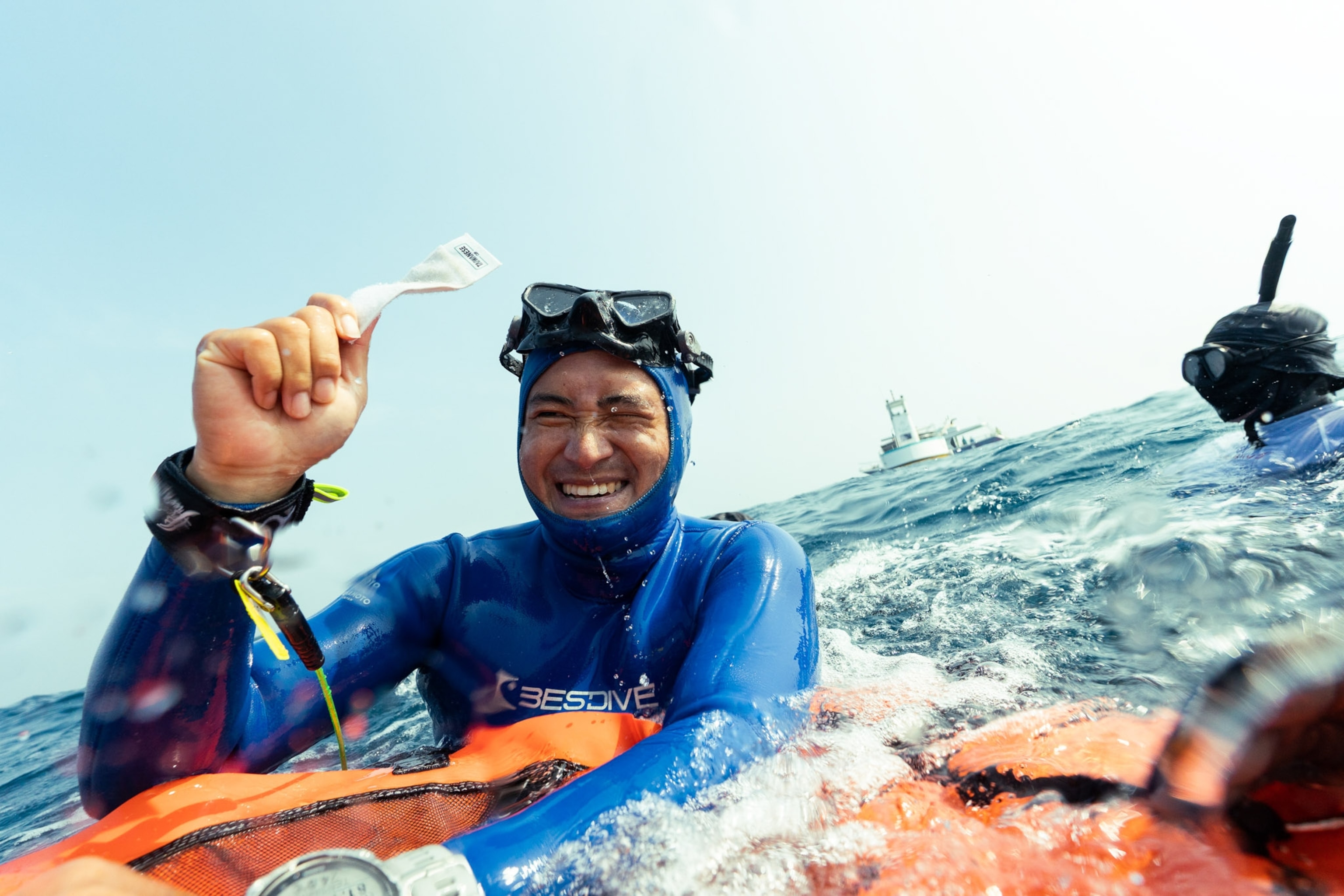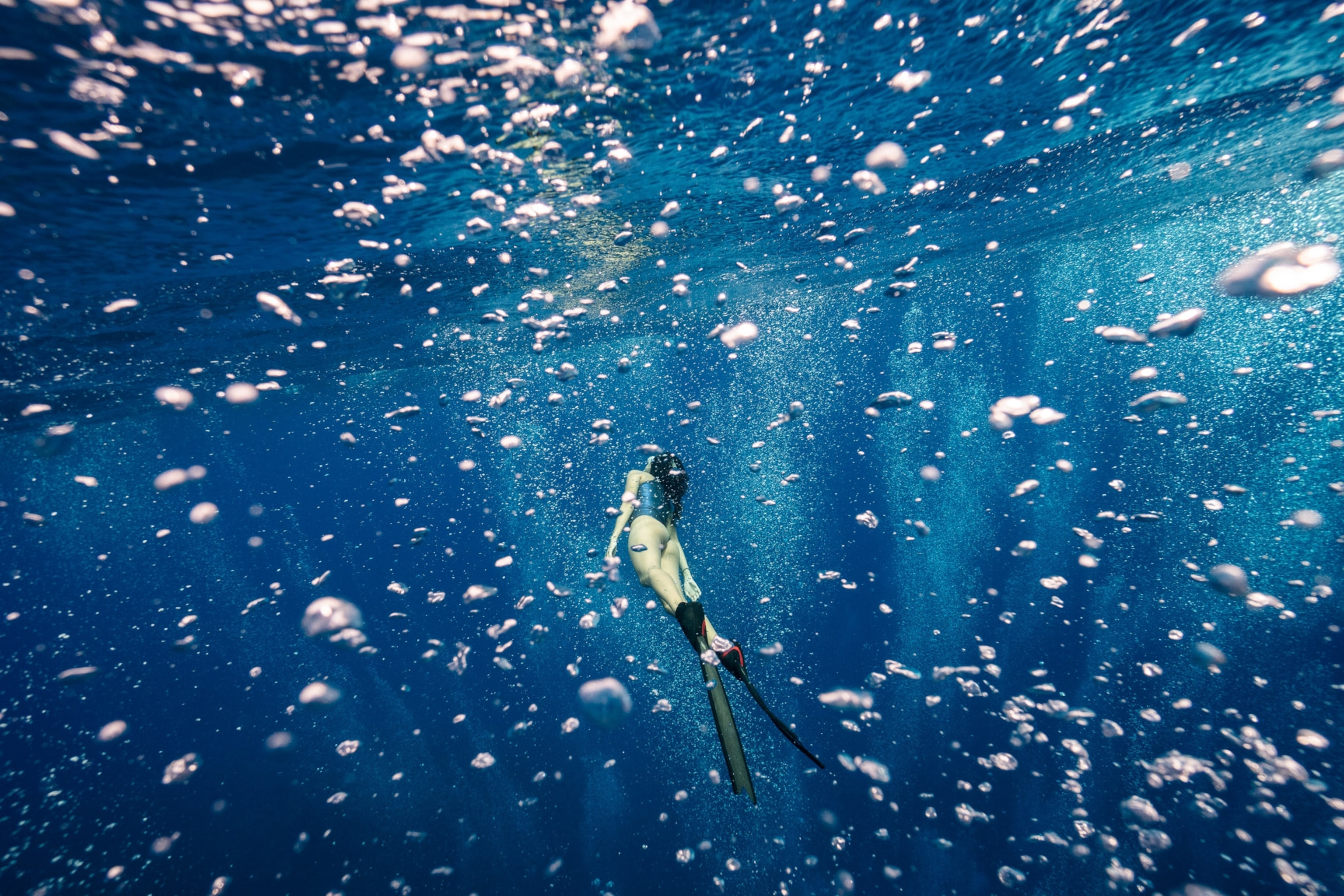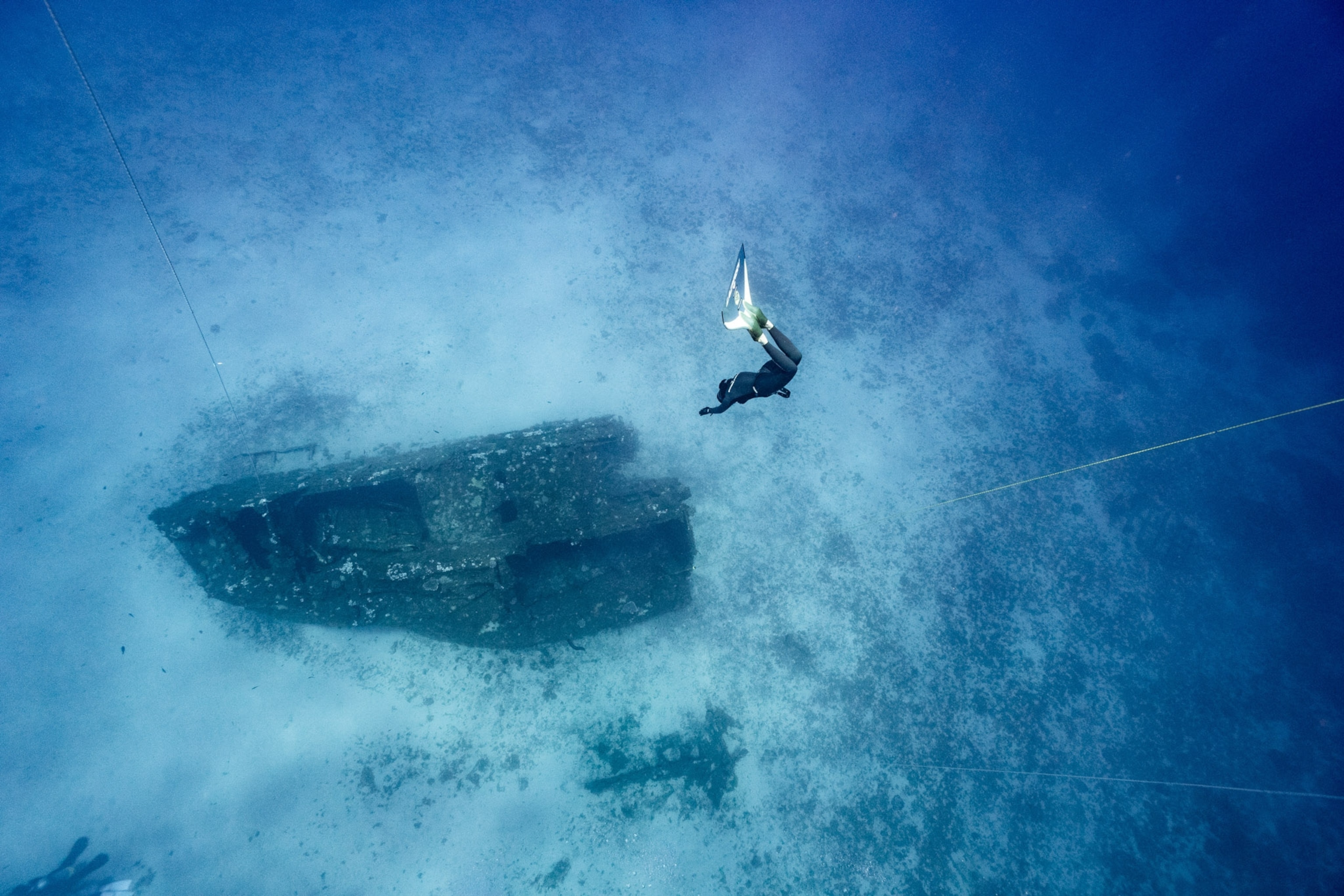
Why you should hold your breath and try freediving in Taiwan
Freediving, the art of diving underwater in one breath, is one of the world’s fastest-growing sports. Here’s how an island where many don’t know how to swim became one of the sport’s meccas.
Beneath a silvery tornado of sardines, freediving instructor Mia Hou glides through the halcyon waters around Kenting Chuanfanshih in southernmost Taiwan. She’s among the many freedivers in Taiwan joining one of the world’s fastest-growing water sports.
(Coast down east Taiwan on this seven-day rail trip)
Freediving is the art of diving underwater on one breath, sometimes to depths of hundreds of feet. Spearfishers and seafood gatherers, such as Japan’s ama and Korea’s haenyeo, have been freediving for centuries, but an increasing number of divers around the world are joining the practice for fun and sport. According to the Professional Association of Diving Instructors (PADI), there was a 12 percent increase in PADI Freediver Certifications worldwide between 2021 and 2022. The premiere of Netflix’s stunning freediving documentary The Deepest Breath, on July 19, is certain to bring even more visibility to the sport.
AIDA International, the world’s most popular freediving certification agency, reported in 2020 that Taiwan—a self-governing island slightly bigger than Maryland—received the second most freediving certifications worldwide behind China, at number one. Today, there are more than 300 freediving instructors and 90,000-plus freedivers in Taiwan. It’s no wonder Taiwan is home to DiveCube, a diving hotel with Asia’s deepest hotel pool.
This boom is meaningful because, despite being an island, most Taiwanese don’t know how to swim. Reasons include a superstitious fear of the ocean and previously restricted coastlines under martial law for over 40 years.
“They’ve seen nothing but tragedy in the ocean,” says Raymond Ko, a freediving instructor in Taiwan. Drowning is a common cause of death in Taiwan, and there’s an underlying fear of China’s People’s Liberation Army reaching the shores from the ocean.
Freediving is changing that.


Why is Taiwan a mecca for freediving?
Taiwan’s younger generation—born after martial law was lifted in 1987—are facing these fears. Having never experienced the governed shorelines of their parents, these millennial Taiwanese are flouting their elders’ previous hangups and celebrating the surrounding water instead.
Social media plays a significant role in this. “Underwater photography on Instagram drove the growth of freediving in Taiwan,” says Ko. “I see so many kids with $10,000 camera setups around the dive spots.”
But newbies hoping for stunning photos to post on social media should know that freediving is considered an extreme sport with the risk of underwater blackouts. Nevertheless, with proper training and adherence to protocols—such as never diving alone—the sport can be quite safe.
Many of Taiwan’s freedivers will join Deep Week, a freediving camp hosting its first event in Xiaoliuqiu, November 18-25. The roster of teachers includes four Taiwanese record-holders and arguably the world’s greatest living freediver, Alexey Molchanov. “Taiwan has one of the largest freediving populations in the world and world-class diving conditions,” says Deep Week founder Adam Stern. “Being centrally located in Asia makes traveling to and from the event easy for all the international freedivers.”
(Here’s what it’s like to dive through French Polynesia’s shark alley.)
Deep Week will expose a wave of international freediving enthusiasts and champions to Taiwan, but Hou has already noticed travelers coming to Taiwan to freedive from Europe, China, and especially from Hong Kong.
“I’m one of the few English-speaking instructors in Taiwan, but half of my students have been from overseas,” says Ko.

Best freediving spots in Taiwan
Although northern Taiwan, including the capital city of Taipei, has cold waters and large waves, stellar freediving-friendly locations are located in the south.
Xiaoliuqiu—a tiny island off the southwestern coast of Taiwan, is attractive for freediving year-round and popular for swimming with its over 800 protected green turtles and hawksbills. Encounters underwater with these magnificently placid reptiles are almost guaranteed, and because of its geographic location, Xiaoliuqiu is protected from winds, resulting in calm waters ideal for dives.
Southern islands off the coast, such as Penghu and Orchid Island, are renowned for warmer water temperatures, crystal-clear visibility, and minimal waves. Far-flung Orchid Island—called Lanyu by locals—is home to the aboriginal Tao people and prized for abundant swirls of fish. A unique underwater topography includes massive sea fans and soft corals.

(Scared to scuba? Here are 5 reasons it’s finally time to learn.)
Known for their basalt-crowned landscapes, the Penghu Islands are an archipelago of about 90 islands and islets. South Penghu Marine National Park protects bountiful coral and marine life like stingrays, cuttlefish, sweetlips, and yellowtail barracuda. Also popular is a working mailbox located 20 feet underwater off the coast of southern Penghu with water-resistant postcards and markers on offer.
“I’m in love with being underwater in Taiwan’s gorgeous ocean,” says Hou. “When diving upside down, I get lost in the big blue.”
What to know
Fly into Kaohsiung International Airport and take a taxi to Dong Gong to catch the 20-minute ferry to the island. Freedive Nomad offers courses in Xiaoliuqiu as well as concierge service, transportation, and tours.
Taichung City
Find freediving and scuba diving classes and underwater photography services at DiveCube Hotel in Taichung City, a 20-minute drive from the Taichung International Airport. Freedivers come for one of the deepest pools in Asia—almost 69 feet.
Green Island
Located in southeast Taiwan, this volcanic island has swirling masses of tropical fish and over 300 colorful soft and hard coral species. Take a one-hour connecting flight from Taoyuan International Airport to Taitung, then take another flight to Lüdao Airport or the 50-minute Green Island ferry.
Orchid Island
For the advanced diver—due to sharp rocks and unpredictable currents—find world-class underwater visibility on Orchid Island in southeast Taiwan. As with Green Island, fly from one of the international airports into Taitung. Next, jump on another 50-minute flight to Lanyu Airport or take a 2.5-hour ferry from Taitung to Lanyu.
Kaila Yu is a journalist in Los Angeles obsessed with animals, freediving, scuba diving, and being underwater. Follow her on Instagram and Twitter.
Wenyan Wang is an independent photographer and freediver living in Taiwan.